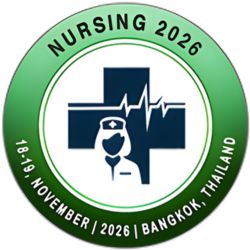Track: Pregnancy Care and Child Birth

Antenatal Care
Antenatal care refers to the medical care and support provided to
a woman during pregnancy to ensure the health of both the mother and the
developing baby. It involves regular check-ups, screenings, health education,
and management of any complications. Effective antenatal care helps prevent
risks and promotes a safe pregnancy and delivery.
Cesarean Surgery
Cesarean surgery (C-section) is a surgical procedure used to
deliver a baby through an incision in the abdomen and uterus. It may be planned
or performed in emergencies when vaginal delivery poses risks to the mother or
baby. C-sections require recovery time and careful post-operative care to avoid
complications.
Prenatal Medical Care
Prenatal medical care focuses on the health of the mother and
fetus throughout pregnancy. It includes regular visits to a healthcare provider
for monitoring fetal growth, checking for potential complications like
gestational diabetes or preeclampsia, and offering guidance on nutrition,
exercise, and childbirth preparation to ensure a healthy pregnancy and
delivery.
Drug Use and Pregnancy
Drug use during pregnancy can pose significant risks to the
developing fetus, leading to birth defects, preterm birth, or developmental
issues. Both prescription and illicit drugs may have harmful effects. Expecting
mothers are encouraged to avoid substance use and seek guidance from healthcare
providers for safe alternatives to manage health conditions during pregnancy.
Labor and Delivery
Labor and delivery refer to the process of giving birth, beginning
with contractions and the opening of the cervix, leading to the birth of the
baby. This process can take place vaginally or through a cesarean section,
depending on the health of the mother and baby. Care during labor includes pain
management and monitoring.
Postpartum Care
Postpartum care involves medical and emotional support for a woman
after childbirth. This includes monitoring physical recovery, such as healing
from vaginal or cesarean delivery, managing emotional well-being, providing
breastfeeding support, and addressing any complications like postpartum
depression. Effective postpartum care is vital for the mother’s long-term
health and well-being.
Breastfeeding
Breastfeeding is the natural process of feeding an infant with
milk produced by the mother’s breasts. It provides essential nutrients,
antibodies, and emotional bonding. Exclusive breastfeeding is recommended for
the first six months of life to support optimal growth and development. Support
from healthcare providers can help overcome challenges related to
breastfeeding.
Scientific Highlights
- Nursing in Healthcare
- Nursing Education and Research
- Primary Health Care
- Nursing and healthcare informatics
- Nursing in Women's Health
- Pediatrics and Neonatal Nursing
- Critical Care and Emergency Nursing
- Occupational nursing and Safety Health
- Role of Nurses in Covid 19 Pandemic
- Midwifery
- Patient Safety and Nursing Care Quality
- Infection, Prevention and Control
- Gynecology and Obstetrics
- Cervical Cancer
- Pregnancy Care and Child Birth
- Sexually Transmitted Diseases (STD)
- Urogynecology


